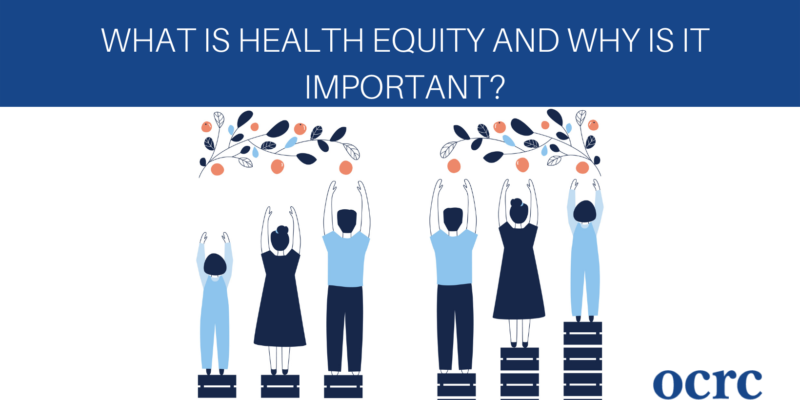
April is National Minority Health Month, a time to emphasize the health of racial and ethnic minorities in the United States. By collectively working to reduce health disparities, we can amplify existing year-round efforts to promote health equity.
Simply put, health equity means that everyone has the opportunity to be as healthy as possible, regardless of their circumstances. This is achieved with several steps, including:
After all, inclusion of all races and ethnicities in clinical trials and health conversations isn’t just a social issue—it’s a medical issue.
They may sound similar, but there’s actually a pretty big difference between the terms “equity” and “equality.”
Equality means that everyone is given the same resources and/or opportunities. Conversely, equity is the recognition that some individuals or groups need an extra boost to reach an equal outcome.
Examples of health equity include:
CDC’s Office of Minority Health and Health Equity (OMHHE) says it best: persistent health disparities in our country are unacceptable and correctable.
Health influences happiness and overall well-being, so it’s only logical that everyone should get the opportunity to be as healthy as possible.
Health equity involves breaking down barriers—such as discrimination and lack of resources— that lead to those inequalities; it means recognizing that some demographics require additional resources and opportunities in order to reach their full health potential.
Health disparities refer to differences that impact one’s ability to achieve optimal health.
Examples of health disparities include:
Health inequities are the direct result of these differences in health outcomes among certain groups of people.
Social determinants of health are the environmental conditions that affect one’s health, well-being, and quality of life.
Social determinants of health can be grouped into five categories:
These social determinants of health can also contribute to health disparities and inequities. For example: an inability to access healthy groceries due to income and/or location can lead to poor nutrition; poor nutrition can lead to a higher risk of heart disease, diabetes, and obesity.
Achieving health equity requires collective organizational, community, political, and individual efforts. At OCRC, we are committed to including participants of all ethnicities
and backgrounds in our clinical trials.
Interested in representing your community? Check out our current studies to see if you qualify for participation in a clinical trial.
